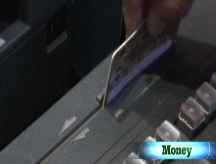Weigh in on proposed credit card laws
If you've been the victim of some egregious credit card tactics, now's your chance to speak out.
| MMA | 0.69% |
| $10K MMA | 0.42% |
| 6 month CD | 0.94% |
| 1 yr CD | 1.49% |
| 5 yr CD | 1.93% |
NEW YORK (CNNMoney.com) -- Ever find yourself going off on the customer service representative after a particularly steep credit card fee or unexpected rate increase? Well now is your chance to tell those who could ultimately change credit card laws in the United States.
Members of the Federal Reserve Board have proposed rules to protect consumers from unfair credit cards practices like unexpected rate increases and double-cycle billing, among other grievances. And they want to hear from you.
But while consumers are overwhelmingly in favor of the new rules, credit card issuers and banking industry lobbyists say the legislation will only hurt customers and small business owners. But the Fed is weighing arguments from both sides.
The rules are currently open to public comment under the Federal Trade Commission Act and so far over 12,000 people have chimed in.
The Board's proposal includes some key protections for consumers that use credit cards, such as prohibiting banks from upping the rate on pre-existing credit card balances and applying payments in a way that maximizes interest penalties.
The proposal also requires banks to notify consumers if they are nearing their limit and let them opt out of overdrawing their accounts, before any fees are imposed.
Consumers would also be given a reasonable amount of time to make payments and payments would be applied to higher-rate balances first.
And, finally, an end to the "double-cycle" method, which averages out the balance from two previous bills, so you still get hit with retroactive interest even if you've paid off your balance.
"The proposed rules are intended to establish a new baseline for fairness in how credit card plans operate," Federal Reserve Chairman Ben Bernanke said in a statement. "Consumers relying on credit cards should be better able to predict how their decisions and actions will affect their costs."
Not surprisingly, there has been overwhelming consumer support for the Fed's proposed changes. Many of the comments include personal stories of credit card woes and almost all share distaste for credit-card issuers.
"We need more protection against these rapacious banks and other lenders!" one comment read. Others cheer Bernanke's actions, calling him "real life hero" and refer to banks as "crooks" and "thieves."
Another comment said "any cries from the banking industry about this proposal are assuredly smoke and mirrors designed only to protect their profit margins and excessive executive compensation."
But representatives from the banking industry argue that is not the case, and that the proposed rules are too restrictive and ultimately bad news for consumers.
According to the American Bankers Association, these proposals go too far. "We are deeply concerned that these rules will result in less competition, higher consumer prices, fewer consumer choices and reduced consumer access to credit cards," President and CEO Edward Yingling said in a statement.
The proposal could restrict the ability of card companies to charge interest rates that reflect the risks of different consumers, explained Kenneth Clayton, senior vice president and general counsel of the American Bankers Association Card Policy Council.
If card companies cannot fully assess risk, then the consumers with good credit histories will end up with higher rates. "Banks won't get to reprice an existing balance so banks will have to cover that risk another way and that means higher rates for everybody," Clayton said.
"The reality is, if people pose a risk, then (the credit-card issuer) should be able to price for it and give everyone else lower rates."
Even some consumer advocates agree, "if you start putting a lot of restrictions on the card companies, their profitability is going to be impacted," warned Curtis Arnold, founder of CardRatings.com, a consumer advocacy group. That will force issuers to limit aggressive rate offers and ultimately "hurt those consumers with stellar credit."
In addition, an end to zero- or low- interest balance transfer options could not only effect consumers but small business owners as well.
"Small businesses use balance transfer methods to manage debt load and fund operations," Clayton said. If such restrictions were put on small business operations, "that's not a good thing for the economy."
Meanwhile, other industry experts believe the proposed rules barely scratch the surface.
"While this is a tremendous step in the right direction, there are three additional changes that could be made which would also benefit consumers," suggested Bill Hardekopf, CEO of LowCards.com.
"First, credit card Terms and Conditions need to be written in a way that most people can understand. Second, consumers need to be clearly informed of any proposed changes to their credit card rates and fees with 45 days notice. Third, issuers should be prohibited from charging interest rates on fees."
Now the Federal Reserve is asking you to weigh in. Comments will be accepted through Aug. 4. To add your opinion go to federalreserve.gov and click on the "Consumer Information" tab at the top of the page. Then click on "Proposed Rules for Credit Cards and Overdraft Services" and submit a comment under Regulation AA at the bottom of the page.
The Federal Reserve said it hopes to deliver a final ruling by the end of the year. ![]()


